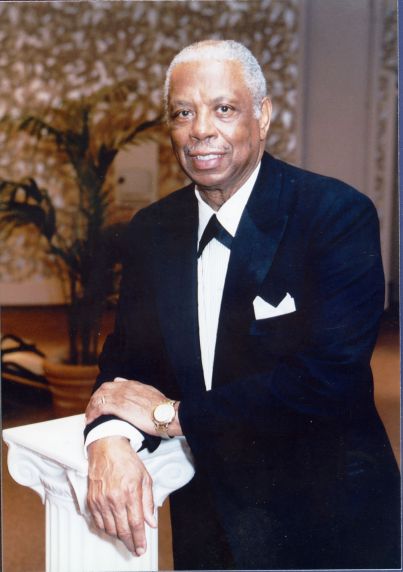Archival Material at Wayne State University
Damon J. Keith Collection of African American Legal History

The Damon J. Keith Collection of African American Legal History is the country's first and only archive dedicated to the perpetual care of the papers, artifacts and memorabilia of African American legal history. Established in 1993 through the vision of Professor Edward Littlejohn, the collection is a partnership between the Walter P. Reuther Library and the Wayne State University Law School. It is available for research by scholars, students and the general public.
Containing the archival papers of numerous African American lawyers, judges, and lawmakers, the collection aims to fulfill the need for a central repository for the nation’s African American legal history with a particular emphasis on Michigan. It also documents the work of others whose service to the community reflects an interest in and commitment to civil rights and social justice.
The Honorable Damon J. Keith, judge of the U.S. Court of Appeals for the Sixth Circuit, became the first records donor and the Keith Collection was firmly established. The Collection is a partnership between the Walter P. Reuther Library, a world-renowned archival repository at Wayne State University, and the Wayne State University Law School and is available for research by scholars, students and the general public.
Collections include, among others, the papers of Kenneth Cockrel, Detroit City Council member, political activist, and lawyer; Ernest Goodman, lawyer to Black radicals and founder of the Detroit chapter of the National Lawyers Guild; and George Crockett, judge at the Recorders Court during presiding over landmark cases related to city life.
Detroit Branch NAACP Records
Kellogg African American Health Care Oral Project Oral Histories
Detroit Revolutionary Movements Records
League of Revolutionary Black Workers (LRBW), formed in 1969 as Black workers, inspired by the 1968 wildcat strike of the Dodge Revolutionary Union Movement (DRUM) at the Dodge Main plant, joined together to fight systemic racism in organized labor — particularly in the UAW, which represented the plants where the League organized. Workers spread their movement through flyers and provocative newsletters, many of which are available in the collection. These materials offer firsthand information about the demands, political viewpoints and allies of Black workers during the late 1960s and early 1970s.